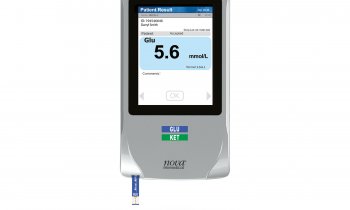Finnish health initiatives help reduce the incidence of diabetes
Mark Nicholls reports
Finland’s national programme for the prevention of Type 2 diabetes (T2D) has already seen a significant sector of the population making meaningful lifestyle changes, while work is also progressing on Type 1 diabetes research in children.


A key figure in this drive to combat diabetes is Professor Jaakko Tuomilehto, at the University of Helsinki’s Department of Public Health. He explained that a national programme for the prevention of T2D was launched in Finland with three concurrent strategies for prevention: The population strategy, high-risk strategy, and strategy of early diagnosis and management. With primary and occupational healthcare providers co-ordinating the initiative, the implementation project called FIN-D2D was first conducted in five hospital districts with a population of 1.5 million, from 2003 - 2007.
Its aims were to reduce the incidence and prevalence of T2D and prevalence of cardiovascular risk factor levels; to identify individuals who were unaware of their T2D; to generate regional and local models and programs for the prevention of T2D; to evaluate the effectiveness, feasibility and costs of the programme; to increase the awareness of T2D and its risk factors in the population, and to support the population strategy of the diabetes prevention programme.
While the long-term impact of the Finnish Diabetes Prevention Study has yet to be realised – with a further follow-up report planned for 2012 – Prof. Tuomilehto said the key activities developed have already become a routine facet of primary care in Finland.
The professor, who has been a pioneer in the fight against diabetes for nearly three decades and as a young clinician was part of the team that helped address the poor rates of cardiovascular health in Finland in the1970s, said: ‘This first part of the nationwide programme has concentrated in developing tools and methods for the detection of high-risk individuals and training health personnel. In the areas where FIN-D2D was implemented a significant decrease in the mean level of body-mass index, the strongest risk factor for T2D, has been detected for the first time.’
Longer term, researchers say they will be able to measure the changes in the incidence of drug-treated T2D patients from the national prescription register
T2D is high in Finland, though comparable with other European populations, with obesity the key risk factor, he said. ‘We know how to prevent T2D with lifestyle modification and how to identify high-risk individuals with simple risk score tools. We now need to learn how this knowledge can be best translated to the real-life situation. Such research is ongoing in Finland and elsewhere. Thus, I believe that T2D prevention will be successful in the near future across the population.’
Prof. Tuomilehto said it has been satisfying to demonstrate the potential for the prevention of T2D. ‘Type 2 diabetes prevention was not discussed at all in the 1980s when I started to advocate it. Today, prevention of T2D has become a reality and is high on the agenda both for research and primary healthcare.’
He also established the first large project focusing on Childhood Diabetes in Finland in the 1980s to discover the aetiology of Type 1 diabetes (T1D).
This, he said, appears the main reason for the high incidence of T1D in children in this country is genetic.
Currently, there are several new projects on T1D among children being conducted by other researchers in Finland but, he added, so far no further evidence on environmental/lifestyle risk factors have emerged.
07.09.2010










